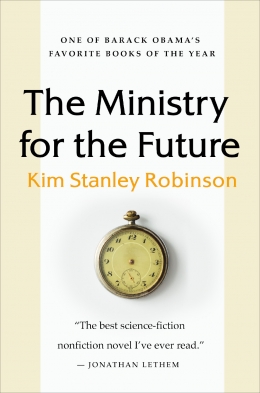
A story set in the near future. This is how it begins...
Article 14 of the Paris Agreement Under the United Nations Framework Convention on Climate Change called for a periodic taking stock of all the signatory nations’ carbon emissions, which meant reporting on the total global carbon burn for the year in question. The first “global stocktake” was scheduled for 2023, and then every five years after that.
That first global stocktake didn’t go well. Very few nations had hit the targets they had set for themselves, even though they had set soft targets. Aware of the shortfall even before the 2023 stocktake, 108 countries had promised to strengthen their pledges; but these were smaller countries, amounting together to about 15 percent of global total emissions.
At the annual Conference of the Parties the following year, emissions had yet to improve prompting some delegates to argue that a new subsidiary body, with permanent duties, and the resources to pursue them, was needed to help move the needle on climate change. So at COP29, held in Bogotá, Colombia, the Parties to the Agreement created a new Subsidiary Body for Implementation of the Agreement, to work with the Intergovernmental Panel on Climate Change, all the agencies of the United Nations, and all of the governments signatory to the Paris Agreement, to advocate for the world’s future generations of citizens.
This new Subsidiary Body was furthermore charged with defending all living creatures present and future who cannot speak for themselves, by promoting their legal standing and physical protection.
Someone in the press named this new agency “the Ministry for the Future,” and the name stuck and spread. It was established in Zurich, Switzerland, in January of 2025.
Not long after that, the big heat wave struck India...and so the work of the Ministry for the Future unfolds.
Reviews
“The best science-fiction nonfiction novel I’ve ever read.” —author Jonathan Lethem
"If I could get policymakers, and citizens, everywhere to read just one book this year, it would be Kim Stanley Robinson’s The Ministry for the Future." —Ezra Klein (Vox)
"Masterly." —The New Yorker
"[A] gutsy, humane view of a near-future Earth...Robinson masterfully integrates the practical details of environmental crises and geoengineering projects into a sweeping, optimistic portrait of humanity's ability to cooperate in the face of disaster. This heartfelt work of hard science-fiction is a must-read for anyone worried about the future of the planet."—Publishers Weekly (starred)















